 Leading Blog | Posts by Month |
 Leading Blog | Posts by Month |
07.31.22

LeadershipNow 140: July 2022 Compilation
See more on
Posted by Michael McKinney at 06:45 AM
07.28.22

Leading Thoughts for July 28, 2022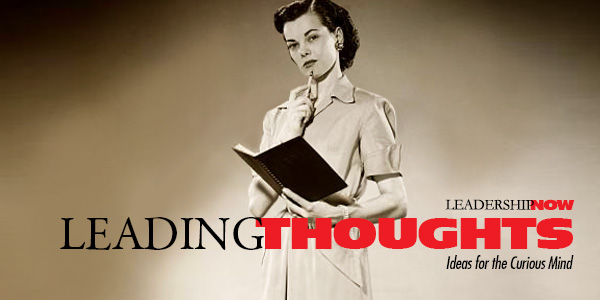
IDEAS shared have the power to expand perspectives, change thinking, and move lives. Here are two ideas for the curious mind to engage with: Betsy Myers on how leadership is about how you make people feel not only about the work but themselves: “The truth of life is that it doesn’t unfold through lofty mission statements or happen in broad strokes. It is a personal, everyday experience for every one of us.” Source: Take the Lead: Motivate, Inspire, and Bring Out the Best in Yourself and Everyone Around You
Mike Thompson on becoming a discerning leader: “Being a discerning leader isn’t about making a good decision, but rather about forming the habit of making good decision after good decision. To become a discerning leader, you need to immerse yourself in a constant state of evaluation. It means continuously gathering and analyzing information, seeking various points of view, and scanning the horizon for coming shifts. Because these leaders never view their decisions as static, they aren’t consumed by trying to make the perfect call. They can confidently move forward, knowing that they can, and will, make adjustments as they go.” Source: The Anywhere Leader: How to Lead and Succeed in Any Business Environment Look for these ideas every Thursday on the Leading Blog. Find more ideas on the LeadingThoughts index.
Posted by Michael McKinney at 06:23 AM
07.25.22

Antigone and the Psychology of Leadership Decision-Making: The Art of Reflection and Compromise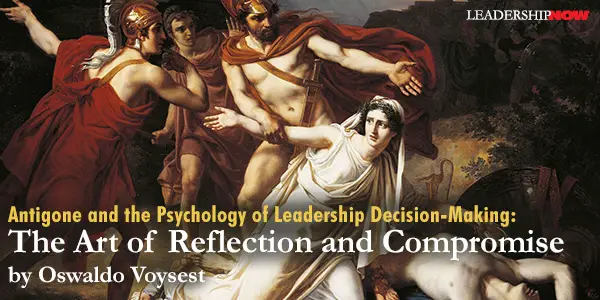
ONE OF THE MOST crucial aspects of leadership is decision-making. We all know why good decisions matter and how bad decisions can be catastrophic. Broadly speaking, the decision-making process for leaders looks something like this: identify the problem(s), gather information, weigh the evidence, develop and analyze alternatives and risks, select an alternative, and then take action. After completing this process, you are pretty confident you have made the right choice. But what happens when an equally right decision arises conflicting with yours? Antigone, a fifth-century BCE play by Sophocles, can help us think through 21st-century leadership situations where two right decisions are at odds with one another and where events overpower what a person thinks or believes in. The Story A quick background. The ancient Greeks constantly sought to improve their polis (city-state) by delving into issues of human nature, social organization, and political life, among many others. The struggle and the attempted balance between the individual and their organization was one of the central features of ancient Greek literature, philosophy, and history. In Antigone, we see the clash between the individual religious imperative and the political interest of the state, both competing to assert the moral high ground. But which is the right decision? What can 21st-century peak performance leaders learn from Antigone when the right versus right dilemmas seem to thwart your plans? As the play opens, Antigone declares her intention to her sister Ismene to defy Creon’s (the Theban ruler’s) order to bury one of their brothers. We find out that her two brothers (Eteocles and Polynices) have killed each other in battle outside the walls of Thebes, and the enemy forces have been successfully driven out of the city. Since Eteocles defended the city, but Polynices attacked it, the former gets a burial with full honors while the latter is to be left to rot under the penalty of death for whoever attempts to bury him. Antigone, uncompromising and knowing full well the consequences of her actions, obeys “the laws of the gods” (lns. 91-92) instead of the “laws of men” (ln. 502). After she is apprehended for performing burial rites on Polynices, Creon’s son (Haemon), who is betrothed to Antigone, pleads with his father to show mercy, but to no avail. Creon orders Antigone to be walled up “alive in a rocky vault” with short rations (lns. 871-72), but the city prophet tells him that doom and tragedy will befall him if he does not reverse his decision. At first, Creon mocks and insults the prophet, but in the end decides to heed his warning, only to arrive too late for Antigone, his son, and his own wife have all killed themselves. Importance of Sound Reflection In his book Questions of Character: Illuminating the Heart of Leadership through Literature, Professor Joseph Badaracco argues that Antigone shows us the importance of sound reflection for leaders “in the midst of enormous pressures and ceaseless distractions” and the calamitous “consequences of failing to do so.” For him, on the surface, the play appears as a conflict between two principles: family and country. However, Badaracco adds, it’s more like two similar leaders defending their single highest moral value for leadership —religion for Antigone and civic duty for Creon. This conflict seems analogous to Dennis Prager’s critique of idealists and extremists in his book Think a Second Time. Taking extremists as an example, Prager argues that extremism is a much easier and more comfortable position than moderation since the latter involves wrestling “with and [weighing] competing values.” He adds that those who are not extreme idealists “frequently are plagued by the realization that competing good values almost always exist, and are always assessing the consequences of their commitments to any given value” (161). Seeking Compromise and Solution-Driven Collaboration Similarly, in Antigone, we see the tragic consequences of unbending thinking in not acknowledging competing goods and not seeking compromise and solution-driven collaboration. Sophocles seems to suggest that good reflection “is not an individual exercise but a fundamentally communal one” (Badaracco 177). Creon does not heed the words or advice of his son, to the blind prophets, or to the Chorus. Like Dennis Prager’s description of an extremist, he “can never have too much of this good value” (160)—patriotism, in his case. For her part, Antigone, throughout the play, cannot acknowledge a competing good value either: “I alone, see what I suffer now at the hands of what breed of men— all for reverence, my reverence for the gods!” The decision-making process for leaders is not a simple one since it often involves a balance between emotional and reason-based considerations. Weighing options, looking at alternatives and implications, considering the viability of projects and proposals, etc., are all important considerations. Most decisions involve making tough calls between equally valid and viable choices, and in our technological and digital-driven age, the large amount of data and information available almost instantaneously can contribute to the conflict between competing good ideas. Yet, there are cognitive biases, past experiences, individual differences and beliefs, and other relevant factors that cannot be ignored. Take the well-known Blockbuster case, whose downfall was due to more than just the appearance of Netflix as a competitor or the inability to join the tech bandwagon advances. Alan Payne, the former franchisee who owned the second-to-last US Blockbuster in Alaska, told corporate offices that Blockbuster’s business model was not addressing competition from other sources, but nobody listened. Years later, Blockbuster’s owner, Wayne Huizenga, found in time a solution for the floundering profitability of the company—he sold it to the media conglomerate Viacom in 1994. In the end, the new boss, CEO John Antioco, reportedly laughed off an offer by Netflix and made Netflix an example of what is called, in business theory, disruptive innovation. As mentioned above, the deliberation process encompasses a range of feelings and emotions, unforeseen changes, open-ended situations, possibly moral and ethical considerations, and a host of other factors. Ambiguities are a part of life and certainly of the decision-making process. Like both Antigone and Creon, many leaders display a seemingly admirable tenacity. Nonetheless, many get carried away by their own tendencies and instincts, and even their own apparent success, and fail to reflect on the more complex series of variables beyond the basic decision-making paradigm (right vs. wrong). Choices are normally tough and may challenge our ideas, beliefs, or identity. They involve more our moral force and integrity than any sophisticated algorithm or technical skill. Just like in Antigone, where we see “Creon’s greatest challenge is not Antigone or rebels hiding in Thebes, but his own character, [a]nd Antigone’s great challenge lies withing herself, not in Creon’s edict” (Badaracco 171), for any leader, in the final analysis, it will be his/her character combined with shrewd pragmatism rooted in ethical choices that are tested. How they respond will depend on reflecting deeply and knowing how and when to compromise accordingly. 
Posted by Michael McKinney at 11:01 AM
07.21.22

Leading Thoughts for July 21, 2022
IDEAS shared have the power to expand perspectives, change thinking, and move lives. Here are two ideas for the curious mind to engage with: Jack Zenger, Joe Folkman, and Scott Edinger on how clarity tells people what not to do: “Clarity of vision helps all members of the group to be vigilant about not attempting to serve everyone who wants to be a customer, or to embark on any project about which someone becomes enthused, or to create a new product because one prospect or client expresses interest in it. These are hard decisions to make, especially for newly created organizations that are scratching out their existence. But given limited resources, it is especially crucial for those companies to stay focused.” Source: The Inspiring Leader: Unlocking the Secrets of How Extraordinary Leaders Motivate
Musician and speaker David Usher on the opportunities to apply creative principles to all areas of our lives: “Once you start to look at the world through the lens of creativity, everything looks different. Creative thinking is an integral part of everything we make, but also every relationship we have and every interaction in our lives. It’s not just about the world of things. It exists in the connections we make, how we formulate sentences, the way we negotiate with our bosses, and how we choose to look at the world. Once you see the creative process as the underpinning of all these connections and interactions, then the world really is different. Instead of just acting by instinct and routine, repeating the same patterns over and over, you begin to view interactions as possibilities, and you become an active participant. Every moment and interaction becomes an opportunity to apply the principles of creative thinking.” Source: Let the Elephants Run: Unlock Your Creativity and Change Everything Look for these ideas every Thursday on the Leading Blog. Find more ideas on the LeadingThoughts index.
Posted by Michael McKinney at 06:32 AM
07.18.22

Leading with Heart: Five Conversations that Unlock Creativity, Purpose, and Results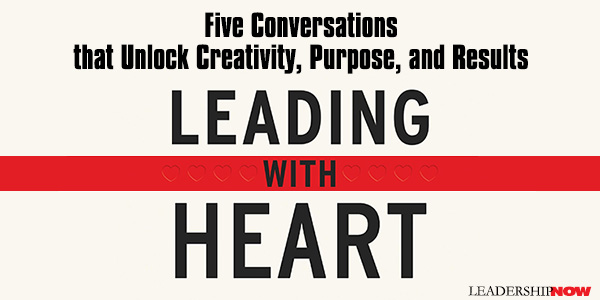
THERE ARE FIVE core characteristics that help leaders connect at an authentic human level with their people: they are aware of other people’s needs, they confront their people’s fears, they understand their own desires and what drives their people, they leverage their gifts, and they connect with purpose. These leaders lead with heart. They are “simply the most relentlessly curious, caring, and insightful about themselves and their people.” John Baird and Edward Sullivan explain in Leading with Heart that they do it by engaging in conversations about what we really need to feel safe and creative. The five questions are designed to remove the barriers that have kept us from leading with heart: 1. What do you need to be at your best? When a houseplant wilts, we don’t yell at it, offer it more money, or put it on a performance improvement plan. We give it more water, move it closer to the sun, and make sure it’s getting the nutrients it needs until the leaves perk up and regain their color. The same goes for us as people. To lead with heart means we need to have conversations about not only our physical (diet, sleep, and exercise) and emotional needs but also the physical space we function in—the environment. Often our belief systems keep us from doing what we should be doing to be sure our baseline needs are being met. And then we ac out. “Some clear tells that we ourselves ou our teams are not getting their needs met: irritability, disagreements, anxiety, lack of motivation, and lack of creativity, all of which make us susceptible to being triggered into fear responses.” 2. Which fears are holding you back? We create negative or self-limiting stories about ourselves. By uncovering what frightens us and by getting radically serious about the fears of our teams, we can begin ridding ourselves of blocks, untruths, and old defeatist stories that weigh on us, as well as all the unhelpful behaviors we engage in when we are triggered in response to our fears. What are my fears is the most challenging conversation to have and to create change around. Naming your fear(s) and embracing them in order to choose different behaviors is the first step. People around us are acting out of fear all the time. Compassion and curiosity for that fear are your first line of defense. 3. Which desires drive you, and which might derail you? Our deepest desires can be incredible sources of motivation. Feeling like we are winning, like we are contributing, like we have influence—these can get us out of bed in the morning. But if we let our desires get out of hand, we can get derailed. Leaders who fall from grace most often have a desire problem because they satisfy a short-term desire without considering the long-term consequences. We can create blindspots around our desires as we rationalize what feels good to us. It is crucial for leaders to be very clear about what their values mean in practice. Transparency can be conflated with having no privacy. Honesty can be conflated with oversharing. And inclusion can be conflated with consensus. 4. What are your greatest gifts? The greatest leaders have an uncanny ability to find the unrecognized gifts in their people. They see past what people think they are good at and find something instead that they are great at. Our gifts sometimes come from curious places. From our grief, our flaws, and even our darkest moments. Sometimes our flaws are the overuse of our gifts. When a gift is overused, we and those around us fail to derive the potential that is there to contribute. You will find your gifts and superpowers in your painful experiences. “Many of the most successful and impactful adults had childhoods that were compromised in some way by neglect or abuse. The first step in claiming the gifts we derive from painful experiences is to reframe the stories we tell ourselves about those experiences.” Leading with heart includes helping people see their own gifts and expand their sense of what they are capable of. Social scientists have been telling us for years that positive reinforcement is the best way to get others to adopt new behaviors. Yes, we really are just waiting for someone to say, ‘Good job!’” 5. What is your purpose? Conversations around purpose are really about what impact we seek to have on the world. What am I (or we) here to do? Who am I (or are we) here to serve? Conversations around purpose are perhaps the most important because while we have conversations about our needs, fears, desires, and gifts, if we don’t have a clear sense of purpose, “we don’t have a place to put all that clarity and energy.” Someone who is living without their critical needs being met is often not able to make space in their life for service to others, which is what finding your purpose is all about. These five conversations become your organizational culture. Your culture is a “manifestation of how you as an organization help each other see and understand your needs, fears, desires, gifts, and purpose.

Posted by Michael McKinney at 01:32 PM
07.15.22

Leading in Volatile Times: 3 Lessons from Alexander the Great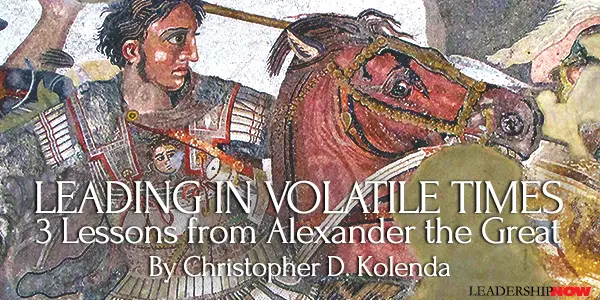
ALEXANDER THE GREAT (356–323 BCE) faced a volatile and uncertain world when he inherited the throne at the age of 19. His father, Philip II of Macedon, had been assassinated. Treachery came from rivals to the throne and powerful neighbors who wanted to test the new king. The calamitous Peloponnesian War, which engulfed the Greek world, had ended barely 70 years before. Nearby, the massive Persian empire threatened Greek independence. War, political instability, economic dislocation, and pandemics jeopardized young Alexander’s reign. Thanks to Aristotle’s tutoring on subjects ranging from politics and economics to ethics and rhetoric, the young king was ready to lead. Alexander knew how to think, so he could adapt to circumstances rather than be hidebound to a certain playbook. As I’ve studied Alexander the Great, three insights seem deeply relevant today. 1. Success starts with the ABCs: accountability, buy-in, and clarity Alexander made his priorities clear: secure the throne so that he had freedom of action, assert leadership over the Greek city-states to avoid civil war, and end the Persian threat so that the people of Greece could live and prosper in peace. Alexander had no time to waste as key Greek cities allied to fight against him. Though Alexander’s father had defeated many of the city-states and formed the Hellenic Alliance, with Philip’s death, Athens, Thebes, and others saw an opportunity to shift the balance of power. Alexander used a combination of diplomacy and cunning to gain their buy-in. Before marching on Athens, he stopped at Thermopylae to pay his respects for the heroic defense against the Persian invasion—and Athens came over to his side. Instead of having the iconic city militating against him, Alexander won its support. When Thebes revolted and refused to talk, Alexander sacked the city. He rewarded successful leaders with greater responsibility and fired incompetents. Consistency created accountability. Alexander also used the ABCs during his campaign against the Persians. He provided clarity about removing the Persian threat that had divided the Greeks and damaged their prosperity. He encouraged junior officers to come forward with ideas on how to best defeat the enemy. After beating the Persians in three massive battles, he adjusted his aims to conquest. By allowing trusted local leaders to rule, Alexander gained the buy-in of the Persian people as he marched across the Middle East and into modern-day Iran. He even adopted Persian customs and dress at court to increase the Persians’ sense of belonging. This practice caused a rift with his Greeks, who believed that Alexander was acting as if he were a god, so he adjusted his actions to reduce the tensions and maintain buy-in from all. With the right systems in place and high levels of buy-in across the empire, Alexander was able to focus on strategy and growth and not worry about whether people were doing their jobs. 2. Innovation is the best weapon Alexander applied ingenuity to vexing problems. For instance, when presented with the Gordian knot, he famously cut it rather than try to untie it. He used a similar approach in his battles. In his coastal march through modern-day Lebanon toward Egypt, Alexander was confronted by the city of Tyre, which was accessible only by sea. Leaving a hostile city in his rear would leave his logistics vulnerable. Rather than attempt a blockade or naval landing, Alexander built a causeway over the straits and joined the city to the continent, where it remains to this day. Alexander employed novel battle strategies that consistently surprised his numerically superior foes and allowed Alexander’s forces to win at the lowest possible cost. He maintained his practice of using diplomacy first, offering people a chance to join instead of fight, and was often welcomed as a liberator. Keeping trusted local officials in charge and respecting local customs and religion—while centralizing finance, logistics, and military training—allowed Alexander to maintain a functional balance. 3. When you let in the fresh air, you avoid suffocating on your own gas Autocratic rulers are at high risk of inhaling their own gas, egged on by favor-currying sycophants eager to tell the boss what he or she wants to hear. This situation leads to bad decisions with disastrous results. Here, Alexander’s last days serve as a cautionary tale. Alexander flirted with the line between conviction and obstinance. Greeks began to resent his adoption of Persian customs and dress and were horrified at the practice of obeisance at court, though Alexander wisely exempted Greeks from the practice. The stress of war and maintaining a cosmopolitan empire led to bouts of drinking and intoxicated rage. Alexander murdered one of his trusted subordinates who questioned the king’s judgment. Conspiracies to murder Alexander sprouted with greater frequency. The king self-corrected when he realized he lacked buy-in for greater conquest and a cosmopolitan empire. When confronted by his subordinates in India, Alexander turned his army around for Babylon, taking the perilous route through the Gedrosian desert. Dying of mysterious circumstances at 33, he left no successor. His subordinates divided the empire, and some of their kingdoms lasted 300 years or more. Lessons for today’s leaders Volatile and uncertain times have great hazards and opportunities. Limit the risks with the ABCs. Accountability, buy-in, and clarity will ensure that you maintain cohesion and do the fundamentals well. Innovation in the face of risk-averse competitors holds the potential for massive gains; you’ll ride the wave of change onto new shores as they tread water. Suffocating on your own fumes will be the biggest risk to your success, so surround yourself with trusted advisers who keep the fresh air flowing. 
Posted by Michael McKinney at 06:43 AM
07.14.22

Leading Thoughts for July 14, 2022
IDEAS shared have the power to expand perspectives, change thinking, and move lives. Here are two ideas for the curious mind to engage with: Former president of Chick-fil-A, James Collins, on the correlation between authority and responsibility: “Authority properly used comes packaged with responsibility. Therefore, as I discovered over the years, more authority can be gained in bits and pieces. I gained more authority without having it given to me; all I had to do was figure out what the boss didn’t like to do, take responsibility, and do it.” Source: Creative Followership: In the shadow of Greatness
Bill George on why leaders lose their way: “Leaders whose goal is having power over others, maximizing their wealth, or becoming famous tend to look to other people for fulfillment and acknowledgment of their status. Source: Discover Your True North Look for these ideas every Thursday on the Leading Blog. Find more ideas on the LeadingThoughts index.
Posted by Michael McKinney at 07:52 AM
07.12.22

Build: An Unorthodox Guide to Making Things Worth Making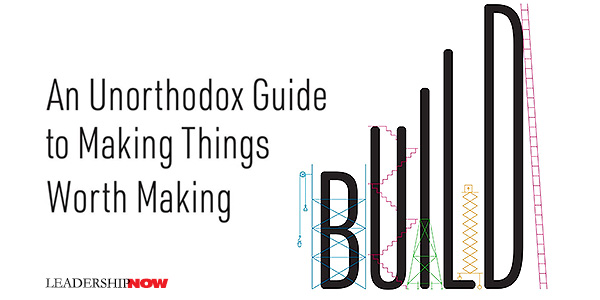
AFTER building the iPod, the iPhone, and co-founding Nest, Tony Fadell’s latest venture is an investment firm called Future Shape. They call themselves “mentors with money.” Their aim is to not only provide funding but help when founders really need it. His book is that without the money. Build: An Unorthodox Guide to Making Things Worth Making is an incredible opportunity to learn how to start, grow, and exit a business from someone who has been through it all. Obviously, he didn’t do everything right along the way, but he did learn from it, and he shares the lessons with us. He divides the lessons into six topics: Build Yourself, Build Your Career, Build Your Product, Build Your Business, Build Your Team, and Be CEO. He says the lessons he shares are “unorthodox” because they are old school. Although everyone dreams of reinvention, disruption, and blowing up old ways of thinking, he has learned that there are “certain things you can’t blow up. Human nature doesn’t change, regardless of what you’re building, where you live, how old you are, how wealthy or not.” It’s ineffective to try to disrupt thinking and behaviors when you haven’t taken the time to find out why it is the way it is. This book, he writes, is “for anyone who wants to create something new, who is chasing excellence, who doesn’t want to waste their precious time on this precious planet,” in a way that he has seen work for himself and others. Fadell begins with Build Yourself. The question to ask when you are starting out is not, “How much money do I want to make?” but “What do I want to learn?” Follow your curiosity. That’s what you’re looking for when you’re young, when you think you know something then suddenly realize you have no idea what you’re doing: a place where you can work as hard as you can to learn as much as you can from people who can make something great. So even if the experience kicks your ass, the force of that kick will propel you into a new stage of your life. As an individual contributor, your job is to sweat the details and focus on your work. But you also need to be doing two things: looking up and around. This will help you to avoid walking into a brick wall. On a project, everyone is on a parallel course heading in the same direction, as shown in the diagram below. The executive team is supposed to be looking out into the horizon, but sometimes they get caught up in the day-to-day.
Your executive team and managers are supposed to be looking out for roadblocks. They’re supposed to warn you so you can adjust course, or at least grab a helmet. But sometimes they don’t. As you grow, your responsibilities grow. When you a given the responsibility to manage a team, your job fundamentally changes. You no longer are tasked with doing what you were so good at. Your job is to manage others. The outcome is your business. When you get deep into the team’s process of doing work rather than the actual work that results from it, that’s when you fall headfirst into micromanagement. Fadell recounts the start of his Silicon Valley career at General Magic (which he calls “the most influential startup nobody has ever heard of”), his move to Phillips, and eventually to Apple. He notes that the “basic technology for the first iPod wasn’t designed at Apple.” It came from a project he was working on at Phillips that never gained traction. When building your product, remember that your product isn’t just your product. It is the whole user experience. Which is why you should be “prototyping your marketing long before you have anything to market.” That marketing should tell a story—the story that is part of the product’s development. Your product’s story is its design, its features, images and videos, quotes from customers, tips from reviewers, conversations with support agents. It’s the sum of what people see and feel about this thing that you’ve created. Fadell says the “best ideas are painkillers, not vitamins.” He adds, “Vitamin pills are good for you, but they’re not essential.” But you need painkillers. The best teams are multigenerational. “Nest employed twenty-year-olds and seventy-year-olds. Experienced people have a wealth of wisdom that they can pass on to the next generation and young people can push back against long-held assumptions.” Everything needs to be designed, so we should all be designers. It’s a way of thinking. We should all be design thinkers. Design thinking gets you to really understand the issue at hand. To look at it from all sides. You shouldn’t outsource a problem before you try to solve it yourself, especially if solving that problem is core to the future of your business. If it’s a critical function, your team needs to build the muscle to understand the process and do it themselves. There is a lot of hard-earned wisdom in this book. I have only scratched the surface. Build is a must-read if you are just starting out, but it will benefit you at any age. And remember, “If you’re not solving a real problem, you can’t start a revolution.” 
Posted by Michael McKinney at 12:09 PM
07.08.22

How To Choose Thoughts That Empower You
MOST of us think that our beliefs are truth. But beliefs are not facts. Rather, they are a core part of our perceptual lens – the way we view events based on past experiences – and thus very powerful in shaping our everyday experiences. There are all kinds of perceptual lenses, and each of us tends to use and overuse our own few personal favorites. For example, when someone has a competitive lens, they will relate to almost any situation as though it is a competition, whether or not any such competition exists. Someone with a binary lens will relate to most situations as if there is only one right answer, and everything and everyone else is wrong. In my coaching practice, I ask every client to talk about the most important beliefs they hold about themselves, their family, work, money, and more. It’s a way into understanding their perceptual lens. Often, this is the first time they’ve ever given this topic any thought, and many get stuck. It’s not that they have no beliefs; they just can’t “see” them. We work together to tease out these lenses. Some of the more common ones are listed here. Do any resonate with you? Impeding Lens: “I’m not as competent as people think; I’m a fraud.” Usually, this belief is not accurate. You hold it because you’re highly critical of yourself. Deep down, you simply think you are not good enough. A better choice: “I can build confidence.” Instead of discounting your entire self as incompetent and fraudulent, turn it around and get more detailed and granular. Ask yourself, “Where, specifically, do I need to improve? Where do I need to shore up my knowledge or experience so I can be confident in my abilities?” That’s a more helpful lens than walking around with an excuse for feeling like you’re not good enough. In other words, we say, “You don’t think you’re confident. Okay, let’s identify where—and then let’s fix that.” Impeding Lens: “I am successful because I work harder and longer than anyone else.” This approach is not helpful for a couple of reasons. First, you are on the road to burnout, and while you are burning out, you are going to miss out on your family, playtime, rest, and life in general. Second, it could be a sign that you don’t have the right aptitude for your job. Let’s take a simplistic example to make the point. If somebody is an accountant and they don’t have the aptitude, it’s very hard for them to do the same amount of work as the guy in the office next door who loves the work and finds it comes easily to him. A better choice: “How do I achieve balance?” Instead of insisting that you work harder and longer than everyone else, switch your focus. Ask yourself: “How can I achieve similar results and also feel more in balance?” This will lead you to place more emphasis (thoughts, moods, and actions) on prioritizing, delegating more effectively, and leveraging the 80/20 rule, where 80 percent of your success stems from 20 percent of your efforts. That means you need to select lenses that allow that to happen. So often, we have a habit of overworking, or being a perfectionist or spending much longer than needed without a measurably better result. Adding “balance” into your lens of productivity will lead you to a way of working that ultimately gets more done, more effectively, and sustains your well-being over the long haul. (Potentially) Impeding Lens: “If I want it done right, I have to do it myself.” This lens is fine if you want to be an individual producer. Stay with it, and you will be amazing. However, you will never leverage yourself and your skills to be able to develop people or have two thousand people under you, because you won’t be able to delegate. If you want to be a senior leader, this lens won’t work. That said, not everyone wants to be a senior leader, and that’s okay. A better choice: Create a safe, secure, supported team. If you do want to be a leader, you need to truly understand that you can’t do it all by yourself. You need to accomplish your goals through others, and that means you need to create followership, and people won’t follow you unless you make them feel safe, secure, and supported as you lay out the clear objectives you want them to accomplish. Whatever your beliefs, the majority were indoctrinated in you throughout your formative years. You learned and absorbed them from your parents, teachers, friends, and even the media—TV, movies, radio, newspapers—you consumed. Now, with adult eyes, you can reconsider and ask yourself: How are those beliefs serving you? What outcomes do they create? Do they consistently help you experience a better life for yourself and those around you? Do they build you up, and build others up, creating optimism, possibility, and a sense of opportunity? You can’t be human and be without any lenses, but you can be aware of your lens, as well as be intentional about choosing an appropriate lens for any given situation.  
Posted by Michael McKinney at 07:30 AM
07.07.22

Leading Thoughts for July 7, 2022
IDEAS shared have the power to expand perspectives, change thinking, and move lives. Here are two ideas for the curious mind to engage with: Henry Kissinger on the need for leadership: “Any society, whatever its political system, is perpetually in transit between a past that forms its memory and a vision of the future that inspires its evolution. Along this route, leadership is indispensable: decisions must be made, trust earned, promises kept, a way forward proposed. Within human institutions—states, religions, armies, companies, schools—leadership is needed to help people reach from where they are to where they have never been and, sometimes, can scarcely imagine going. Without leadership, institutions drift, and nations court growing irrelevance and, ultimately, disaster.” Source: Leadership: Six Studies in World Strategy
In a caution to all leaders, Professor Ngaire Woods at the University of Oxford on why Vladimir Putin would turn Russia into a pariah state without achieving any of the goals of his invasion: “Why would such a powerful leader make such a major blunder? The answer lies in the very nature of power itself. Leaders in positions of tremendous authority often wear blinders that can cause them to make profound mistakes. Power can mislead insofar as it prevents the powerful from taking full stock of the consequences of their actions. Source: Foreign Affairs, July/August 2022, “What the Mighty Miss: The Blind Spots of Power” Look for these ideas every Thursday on the Leading Blog. Find more ideas on the LeadingThoughts index.
Posted by Michael McKinney at 06:50 AM
07.04.22

The Improbable Achievement That Was the American Revolution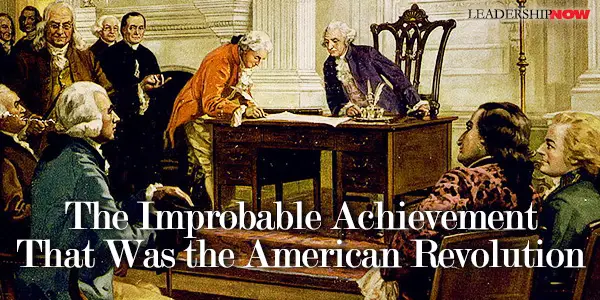
AMERICAN writer and pamphleteer Thomas Paine believed that it was common sense that an island could not rule a continent. “No event in American history which seemed so improbable at the time has seemed so inevitable in retrospect as the American Revolution,” writes Joseph Ellis in Founding Brothers. He adds: The creation of a separate American nation occurred suddenly rather than gradually, in revolutionary rather than evolutionary fashion, the decisive events that shaped the political ideas and institutions of the emerging state all taking place with dynamic intensity during the last quarter of the eighteenth century. No one present at the start knew how it would turn out in the end. It is easily assumed that all of the citizens of the American colony were on the same page. How else could it have worked? “The very term ‘American Revolution’ propagates a wholly fictional sense of national coherence not present in the moment.” It is only in hindsight that we assume the outcome. It is ironic that the very thing they were fighting against was an element in the nation they were trying to create. The key insight shared by most of the vanguard members of the revolutionary generation, is that the very arguments used to justify succession from the British Empire also undermined the legitimacy of any national government capable of overseeing such a far-flung population, or establishing uniform laws that knotted together the thirteen sovereign states and three or four distinct geographic and economic regions. The creation of the United States was a daunting task, to say the least. The United States is the world’s oldest enduring republic because “in 1787 a tiny minority of prominent political leaders from several key states conspired to draft and then ratify a document designed to accommodate republican principles to national scale.” The core principle being personal liberty and, therefore, personal responsibility. It may be easy to criticize what they accomplished almost 250 years later, but we would be wise to remember the words of historians Will and Ariel Durant, “No one man, however brilliant or well-informed, can come in one lifetime to such fullness of understanding as to safely judge and dismiss the customs or institutions of his society, for these are the wisdom of generations after centuries of experiment in the laboratory of history.” The checks and balances that permitted the infant American republic to endure were not primarily legal, constitutional, or institutional, but intensely personal, rooted in the dynamic interaction of leaders with quite different visions and values. What made it work was trust in the intentions of the other person. Their differences provided checks on each other. Character mattered because the fate of the American experiment with republican government still required virtuous leaders to survive. Eventually, the United States might develop into a nation of laws and established institutions capable of surviving corrupt or incompetent public officials. But it was not there yet. It still required honorable and virtuous leaders to endure. What happened in Philadelphia was truly a miracle. And on July 4th, we can be grateful that they, through all of the uncertainty, made it happen. 
Posted by Michael McKinney at 10:12 AM
07.01.22

First Look: Leadership Books for July 2022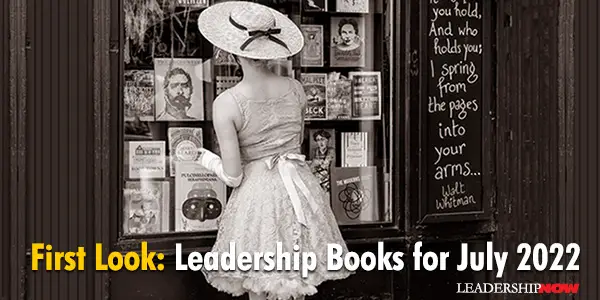
HERE'S A LOOK at some of the best leadership books to be released in July 2022. Be sure to check out the other great titles being offered this month.
In any high-pressure environment, from special operations to the operating theatre, you can divide people into two groups - those who control their performance from the inside out, and those whose performance is controlled from the outside in. In Inside Out, Charlie Unwin, one of the world's leading performance psychologists, explains the techniques that enable the elite to perform at their best under immense pressure. It reveals how they think, prepare and perform, taking you inside the highly unpredictable modern battlefield, the chaos of the catwalk, the operating theatre, the stadium, the maximum-security prison and the opera house. Whatever the challenge, whether life-or-death, or simply chasing a promotion at work, we are all susceptible to becoming 'outside in' - when you start paying more attention to the thought of not messing up than the process of doing something well. The 'Inside Out' method helps you gain control so that you can have a greater impact. It's about mindset, learning new skills, maintaining confidence and sustaining great results over time.
Exploring the dos and don’ts of sustainable corporate innovation, this book explains the most frequently made mistakes and highlights the most common pitfalls in the innovation process. To remain successful, organizations must be able to respond effectively to the fast pace of change or even stay one step ahead of it. To make this possible, it is crucial to look at the future in the right way. This means embracing uncertainty, seizing opportunities and recognizing threats in good time. Through the author's insightful and knowledgeable text, you will gain greater insight into the technological evolutions of the next 10 years and discover how this insight can be turned into a concrete approach that will build future-proof and successfully innovating companies and organisations.
In Driving Results: Six Lessons Learned from Transforming an Iconic Company, now-retired Bridgestone CEO Gary Garfield delivers an incisive and eye-opening road map of how to transform any organization, department, or group. Through a series of massive changes, Garfield drove record results while the CEO. By sharing his learnings on driving change in this insightful book, you’ll learn how you can use the six essential elements to drive results through change at your organization or with your team.
In The Upside of Uncertainty, INSEAD professor Nathan Furr and entrepreneur Susannah Harmon Furr provide a sweeping guide to embracing uncertainty and transforming it into a force for good. Drawing from hundreds of interviews, along with pioneering research in psychology, innovation, and behavioral economics, Nathan and Susannah provide dozens of tools—including mental models, techniques, and reflections—for seeing the upside of uncertainty, developing a vision for what to do next, and opening ourselves up to new possibilities.
From the leading theorist of the Metaverse comes the definitive account of the next internet: what the Metaverse is, what it will take to build it, and what it means for all of us. The term “Metaverse” is suddenly everywhere, from the front pages of national newspapers and the latest fashion trends to the plans of the most powerful companies in history. It is already shaping the policy platforms of the US government, the European Union, and the Chinese Communist Party. But what, exactly, is the Metaverse? As pioneering theorist and venture capitalist Matthew Ball explains, it is a persistent and interconnected network of 3D virtual worlds that will eventually serve as the gateway to most online experiences, and also underpin much of the physical world. For decades, these ideas have been limited to science fiction and video games, but they are now poised to revolutionize every industry and function, from finance and healthcare to education, consumer products, city planning, dating, and well beyond.
The ability to persuade and influence is the cornerstone of success. In Ignite a Shift, internationally acclaimed speaker Stephen McGarvey explores the subtleties of effective communication and highlights the essential fact that thinking impacts emotions which drive behavior. It is the quintessential guide to communication, positive persuasion and influencing with integrity. It reveals the proven techniques that the world's most effective leaders are using to motivate themselves and others to excel professionally and personally.
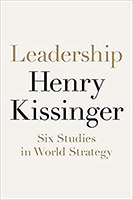 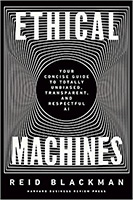 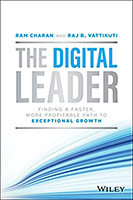 
“To add a library to a house is to give that house a soul.” — Cicero
Posted by Michael McKinney at 03:01 PM

Podcast Episode #001: Karl Moore – We Are All Ambiverts Now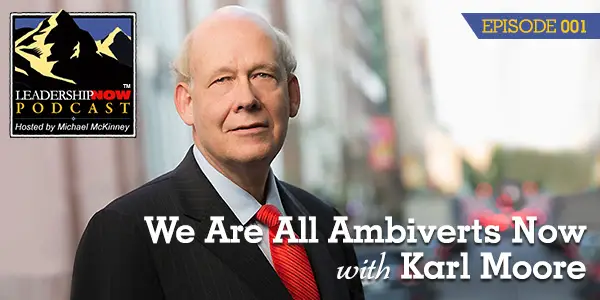
SO you’re an introvert. What now? In this episode we talk about introverts, extroverts, and ambiverts: what are they, and how does it impact our leadership and the workplace. You can find more details and resource links on the episode home page. Karl Moore is a professor at McGill University, an Oxford University Associate Fellow, and author of the upcoming book, OK Boomer: Working with Millennials and Generation Z. He hosts a weekly program called, “The CEO Series” where he interviews global thought and business leaders one-on-one. He has done extensive research on introverts and extroverts, and something in between called ambiverts. He has recently presented his research on introverts at Harvard Business School, Oxford, IMD, and the Stanford Business School.
Posted by Michael McKinney at 06:12 AM
|
BUILD YOUR KNOWLEDGE


How to Do Your Start-Up Right STRAIGHT TALK FOR START-UPS 
Grow Your Leadership Skills NEW AND UPCOMING LEADERSHIP BOOKS 
Leadership Minute BITE-SIZE CONCEPTS YOU CAN CHEW ON 
Classic Leadership Books BOOKS TO READ BEFORE YOU LEAD |
|